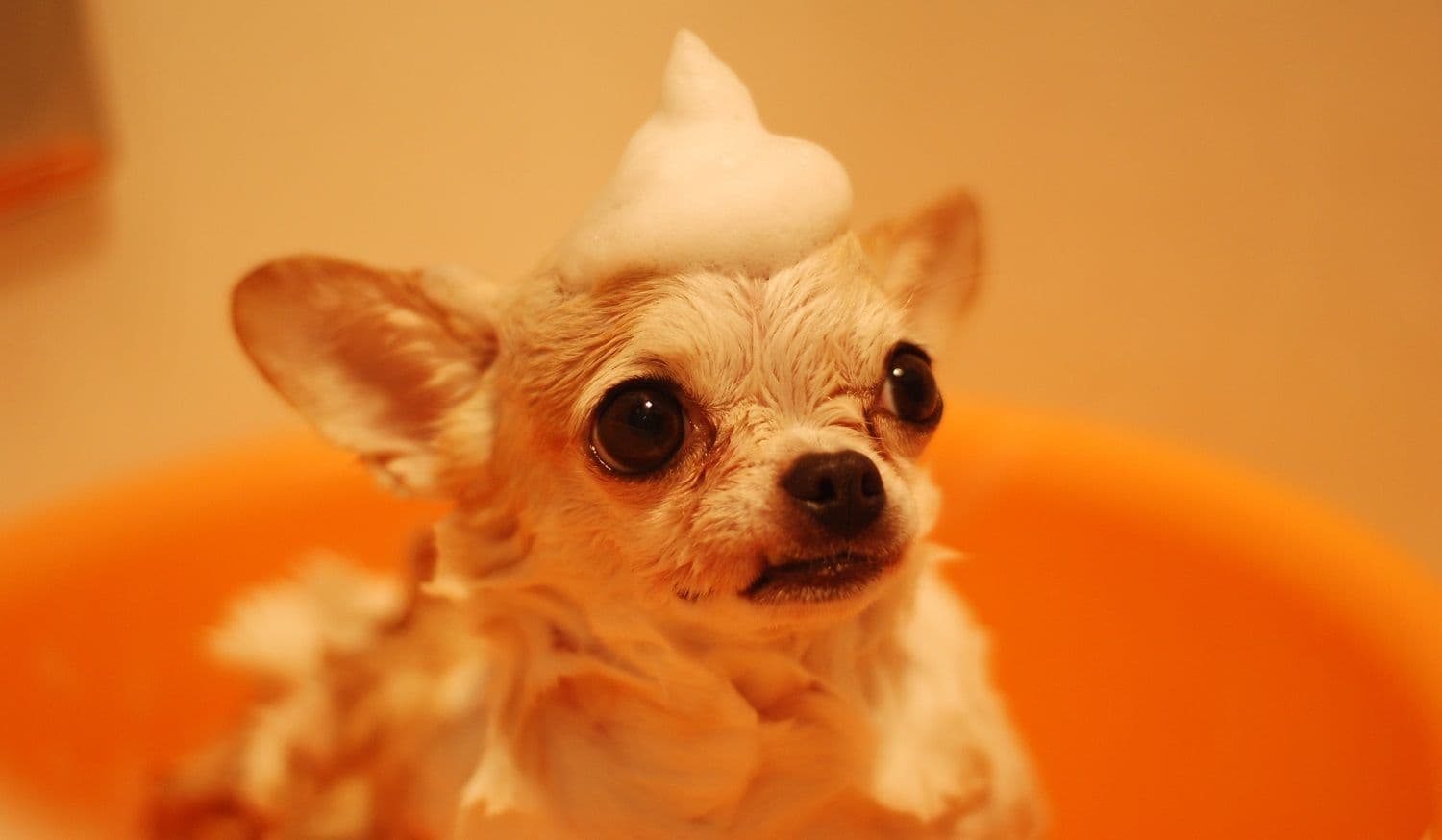Bathing Your Dog: A Comprehensive Guide
Bathing your dog is a fundamental hygiene measure. However, bathing them too often can be detrimental to their health. Consequently, "how often should I bathe my dog?" is a common question asked by many owners. While once a month is the most common answer, the truth is that it depends on several factors.
Factors to Consider
1. Breed and Coat
The frequency of bathing varies between short-haired and long-haired dogs. Long-haired dogs, in most cases, need more care because they have more hair where dust and dirt can hide. But hair length is not the only factor, the type of fur, whether they have oily, thick, water-resistant or double coats are also things to consider. Surprisingly, hairless breeds, such as the Chinese Crested and the Xoloitzcuintli, may need weekly baths.
2. Lifestyle
Dogs with higher activity levels that spend a lot of time running around outside, rolling on dirt or grass or swimming, will probably need baths pretty frequently. Conversely, dogs with lower activity levels that stay home most of the time can lengthen their time between baths.
3. Health
This is an extremely important factor to consider. If your dog has a respiratory condition, bone problem, or other medical condition, then you must be very careful about when and how to bathe him. It is best to always consult with a pet expert before doing so, otherwise, you can aggravate his condition.
4. Age
The age of your dog is another important factor, as it determines the activity level and strength of their defenses.
- Puppies: Puppies should not be bathed before they are 3 months old and without having their vaccinations. If your puppy gets dirty and needs cleaning, use wet wipes for dogs, or a damp sponge without excess water, and make sure to dry it very well afterwards.
- Adults: Adult (young) dogs are the healthiest and most active, so bathing is very beneficial for them as long as it is with the right frequency.
- Seniors: Senior dogs are much less active and their defenses are also lower. They may suffer from a condition that is aggravated if they are bathed excessively (like respiratory problems).
5. Season of the Year
During hot weather, bathing your dog can be comforting for him and can help to kill possible parasites like fleas and ticks. But in winter, it is best to reduce baths to the minimum and essential. This is because temperature changes can be very detrimental to our dog's health, and by getting them wet in cold weather, they are more likely to develop a respiratory condition.
How to Bathe a Dog
Most dogs don’t like baths (and if yours does, consider yourself lucky!), so we need to make it as pleasant as possible for them. Here are a few tips:
- Bathe him in a place with a suitable ambient temperature.
- Brush your dog prior to the bath to help remove extra fur and knots.
- Use warm water, not too hot or cold.
- Use a special dog shampoo that suits your dog's needs.
- Rinse out all of the shampoo from your dog to avoid dry skin.
- Dry your dog very well after the bath, without leaving the place with the right ambient temperature.
- Do not leave him in a place with a temperature very different from that of the bathroom immediately after drying him, as it can affect his health.
Conclusion
Over-bathing your dog can strip the oils from your dog’s coat, which can make it dull, dry and itchy. However, that does not mean that you should never bathe your pet, because bathing is really beneficial for him (to the right extent). The objective of a bath is to eliminate dirt, bad odors and especially pathogens that our pet carries with them.
For more information, talk to one of our Pet Experts and get customized advice by submitting a request in our Mavyn website.
